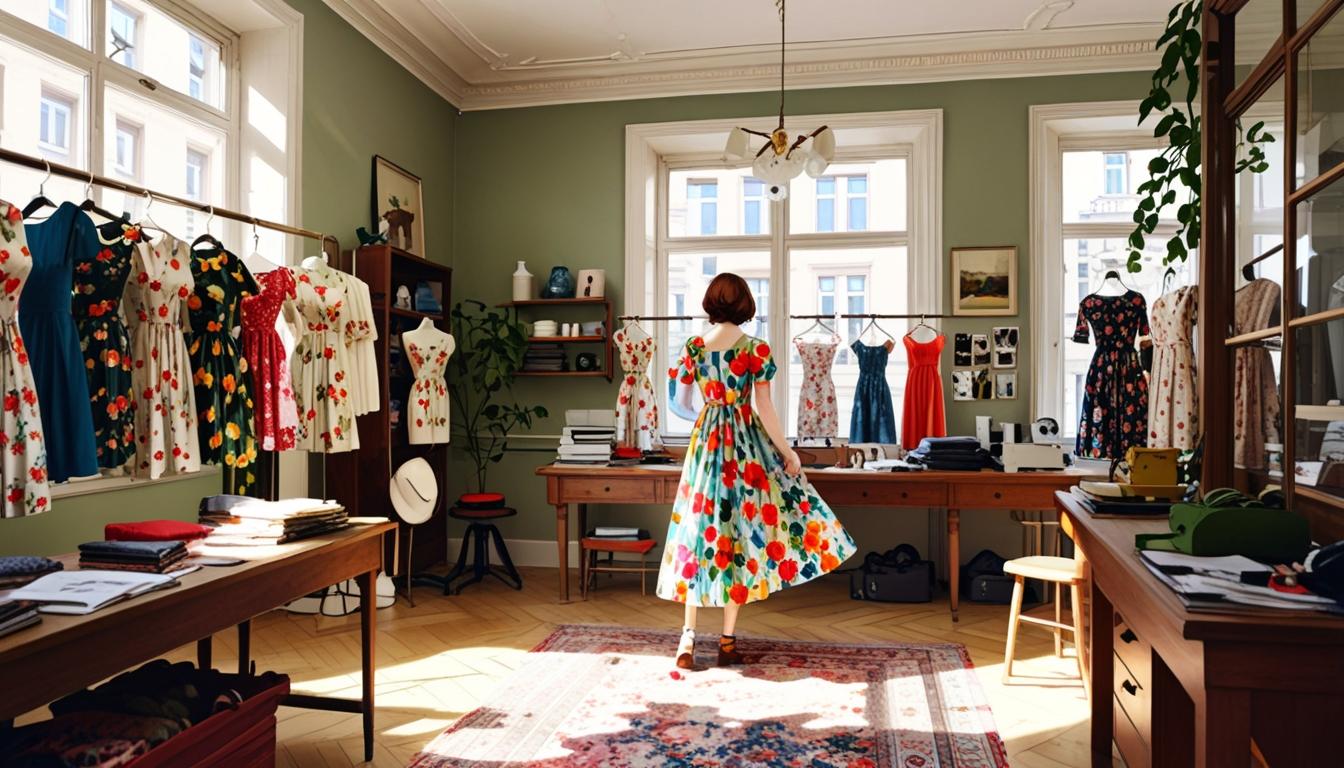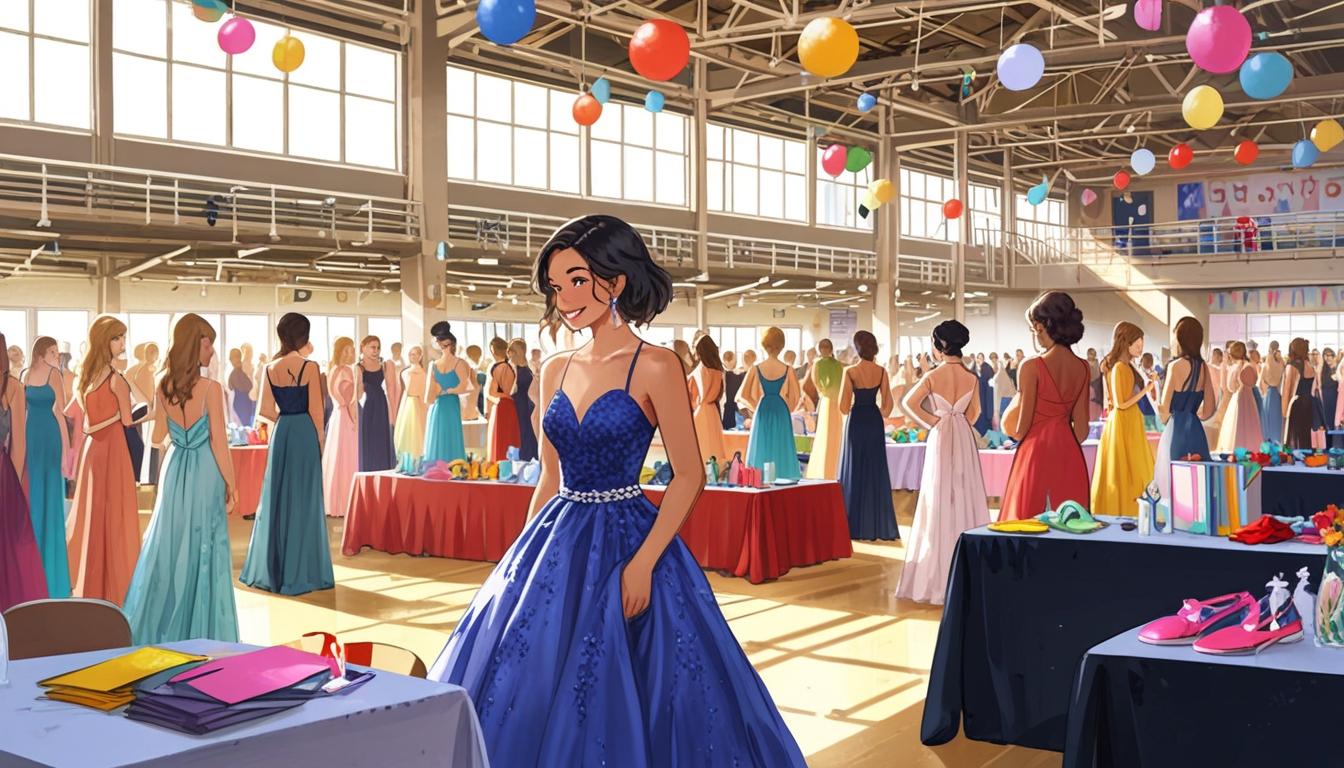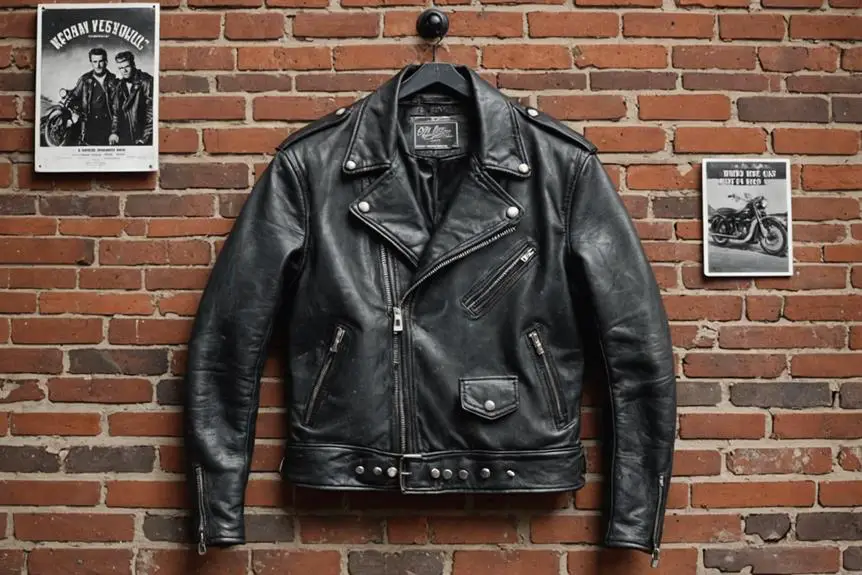Alina Dax, a Ukrainian transplant, runs a tailor shop in Vienna-Neubau that champions vintage clothing and sustainable fashion, offering repairs and alterations to combat fast fashion trends.
In the bustling district of Vienna-Neubau, Alina Dax operates a tailor shop that has become a hub for vintage fashion enthusiasts and those seeking sustainable clothing options. Dax, originally from Ukraine, has embraced her love for vintage clothing not just as a business, but as a commitment to sustainability. She and her husband Andreas took over the business, previously owned by Herta Groß, in 2020.
Inside her studio, Dax can be seen examining a vintage floral dress, noting a hole that can easily be repaired by utilizing fabric from the garment’s seam allowance. This repair approach reflects her broader philosophy towards clothing: preserving and upcycling old items rather than succumbing to the trend of fast fashion. Speaking to the “derStandard,” Dax explained how their business adapted during the pandemic by producing pajamas and accommodating requests for alterations as community members sought to revitalize their wardrobes.
Today, the shop employs three staff members who handle a variety of projects, ranging from sewing historical costumes to adjusting bridal gowns and creating custom outfits. As demand for sustainable fashion continues to grow, the couple is planning to expand their services further.
Dax comments on the evolving mindset about sustainability in clothing, stating, “In the past, clothing needed repairs less often because the quality was better… But yes, awareness for a more sustainable approach to clothing has increased.” As many people face economic challenges, they are more inclined to opt for alterations rather than replacing garments entirely. Popular requests include shortening pants and making adjustments to wedding dresses.
In Austria, statistics indicate that a significant portion of clothing items is discarded within three years of purchase. However, Dax maintains a different outlook, explaining that she never throws away clothing. Instead, she upcycles them into new pieces. “When I get tired of a piece, I upcycle it and make something else out of it,” she noted. Her perspective emphasizes the importance of selecting quality materials when shopping and prioritizing comfort over price.
Dax also shared her distaste for synthetic fibers, advocating for breathable materials and the value of inspecting the craftsmanship of clothing. She expresses a fondness for secondhand fashion over offerings from chain retailers, which often lack uniqueness and individuality.
As the practice of home sewing diminishes, Dax acknowledges that fewer individuals are willing or able to sew items at home. “Hardly anyone can or wants to sew at home anymore. But it’s really not that hard,” she said, reflecting on her early experiences with sewing that began when she was just six years old.
Having grown up in Ukraine during a time of hardship in the 1990s, Dax learned to adapt creatively out of necessity, a skill she continues to practice today. Her DIY ethos shapes her approach to clothing care, emphasizing gentle washing techniques and alternative fabric care solutions like using apple cider vinegar to maintain color.
In discussing modern consumer habits, Dax noted a prevalent pattern where individuals purchase new clothes in an attempt to alleviate stress. She encouraged a mindset shift, suggesting that before a new purchase, potential buyers should critically evaluate whether they truly need the item.
Dax concluded by reflecting on the relationship people have with their clothing, suggesting that the sentimental value attached to garments may be dwindling. She emphasized the significance of the working environment in her studio, highlighting that a positive atmosphere can impact the quality and experience for customers seeking sustainable fashion alternatives.
Source: Noah Wire Services





One Comment